We opened 2019 with an article on Robinson Sinurat and his journey from a small town in North Sumatra to pursuing postgraduate studies at Columbia University in the City of New York. Many of you were inspired and wanted hear more about his journey, so I sat down with him to discuss his experience taking the IELTS, applying for LPDP, and what it’s like at Columbia.
Coming from a non-English-speaking background, how did you learn English and pass the IELTS?
Robinson started his graduate school application process not knowing much English, let alone about IELTS. He started preparing in 2014, and it took him more than a year to finally pass the test. He was also working for a non-governmental organization (NGO) at the time — it wasn’t the most well-paying job so he had to be cost-conscious when it came to finding courses to help prepare him for the test. He first decided to sign up for the English lessons at Universitas Indonesia’s Lembaga Bahasa Indonesia (LBI) organization. However, due to his busy and unpredictable schedule working at the NGO, he ended up only being able to attend a few of the classes, so he decided to just study for the tests on his own.
In January 2015, Robinson decided to take the IELTS to get a feel for how the test would be like. As expected, he did very poorly on the first test, but at least he knew what to prepare for and where his weaknesses lied.
He took the IELTS for the second time a few months after and still failed. In September 2015, he retook the IELTS for the third time, and the results still weren’t good enough. At that time, he was at the University of Nebraska Omaha for the Young Southeast Asian Leaders Initiative (YSEALI) on Civic Engagement, so he hoped that the time he’s spent speaking in English for the few weeks he was there would pay off. He didn’t give up, and kept working hard. In December 2015, he took the test for the fourth time, and finally…he passed the test! “Pas gue dapet hasilnya, gue lagi di British Council. Gue nangis, sampe ditanyain satpam ada apa. Langsung gue telfon nyokap gue untuk ngasih kabar, nyokap gue lagi manjat pohon cabai haha (When I found out the results, I was at the British Council. I cried, until the security asked me what’s wrong. I immediately called my mother to tell her the good news, and she was climbing a chili tree haha)” He failed three times, but he didn’t give up, and on the fourth try he finally made it!

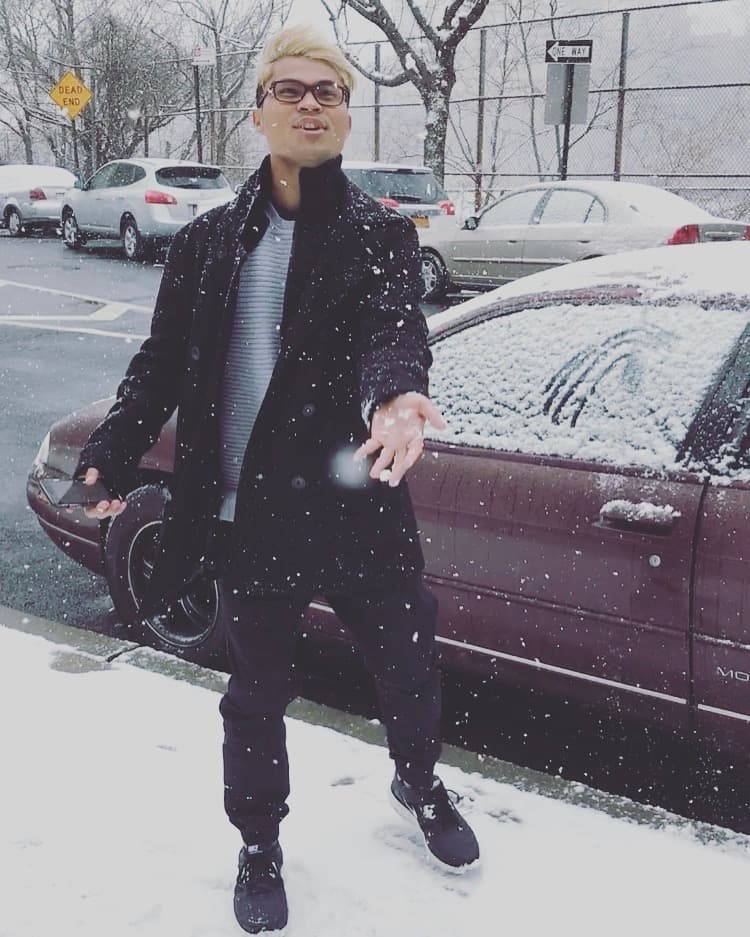
What advice would you give for LPDP applicants on how to ace their application?
To fund his master’s studies, Robinson applied for LPDP (Lembaga Pengelola Dana Pendidikan, or Indonesia Endowment Fund for Education), a scholarship offered by the Indonesian Ministry of Finance. Robinson’s interview for LPDP was very long — the interviewers were curious about his desire to make a drastic switch from a physics undergraduate degree to a master’s degree in social work. Robinson knew that the interviewers would have a lot of questions on their minds, so he made sure to prepare and anticipate as many of the questions as he could before the interview.
His advice to potential LPDP applicants is to just be honest. “Be honest dan be yourself itu penting banget di interview LPDP gue. Apapun yang ditanya, gue jawab jujur banget. Gue apa adanya gitu lho. (Be honest and be yourself were very important mantras in my LPDP interview. Whatever they asked, I would answer as truthfully as I could. I just presented my true self in the application.)” Getting the scholarship meant a lot to Robinson, so he made sure to convey how enthusiastic he was about it and didn’t want to leave without making sure he provided as much information as he could to support his case. As Robinson said, the interview is your chance to put a face to the application and really stand out, so make sure you use the opportunity as best as you can.
Why did you pick Columbia and any advice on the application process?
When Robinson was applying for masters programs, he did his research and narrowed down his top choices to University of Southern California (USC) and Columbia. A lot of people now ask him why he didn’t apply to even more traditionally prestigious schools, such as Harvard University. To this, Robinson says there’s more to picking a school than just the name. Sure, going to a good-name school would help your job prospects upon graduating, but more important than that is finding a university that has a program that suits your needs.
“Gue check requirements nya, mikir bisa atau gak dan cocok atau gak. Jangan langsung mikirnya mau ke Ivy League. Mungkin memang sekolahnya bagus, dan kampus terbaik, tapi belum tentu program yang lo mau adalah yang terbaik dalam bidang itu. Jangan asal main nama aja. Makanya, cari dulu dong, Harvard ada gak program social work? Kan gak ada, ya mana mungkin gue belajar social work di sana. (I checked the requirements, thought about whether I could do it and whether it fits me. Don’t go straight to thinking about Ivy League schools. Maybe yes they are good schools, and they have the best campuses, but they may not necessarily be the best option for the program you’re looking for. Don’t just apply because the school is well-known. That’s why, did you think to find out if Harvard even has a social work program? The answer is no, so of course I didn’t apply to study social work there.)” Moving abroad to pursue graduate studies requires a lot of hard work and energy, so make sure you’ve put a lot of time into making sure the program you’re pursuing is the right one for you.
Searching for schools is the easiest part though; the application process can be long and arduous, and what makes or breaks your application is the essays. During the months that Robinson worked on his application, he was invited to be a judge at a high school English competition organised by the US Embassy in Jakarta. The panel of judges also consisted of someone who worked at the Embassy, and Dr. Grace Josephine Wiradisastra, a Senior Lecturer at the Department of Linguistics Faculty of Humanities at Universitas Indonesia (UI). When Robinson told her that he’s working on his application to Columbia, Dr. Grace kindly offered to help him read over his essay and provide feedback. Moreover, Holly Zardus, the Assistant Cultural Attache at the US Embassy in Jakarta offered to write him a recommendation letter! They saw the excitement and passion that Robinson had for pursuing advanced studies in the field of social work, and offered to help him out.
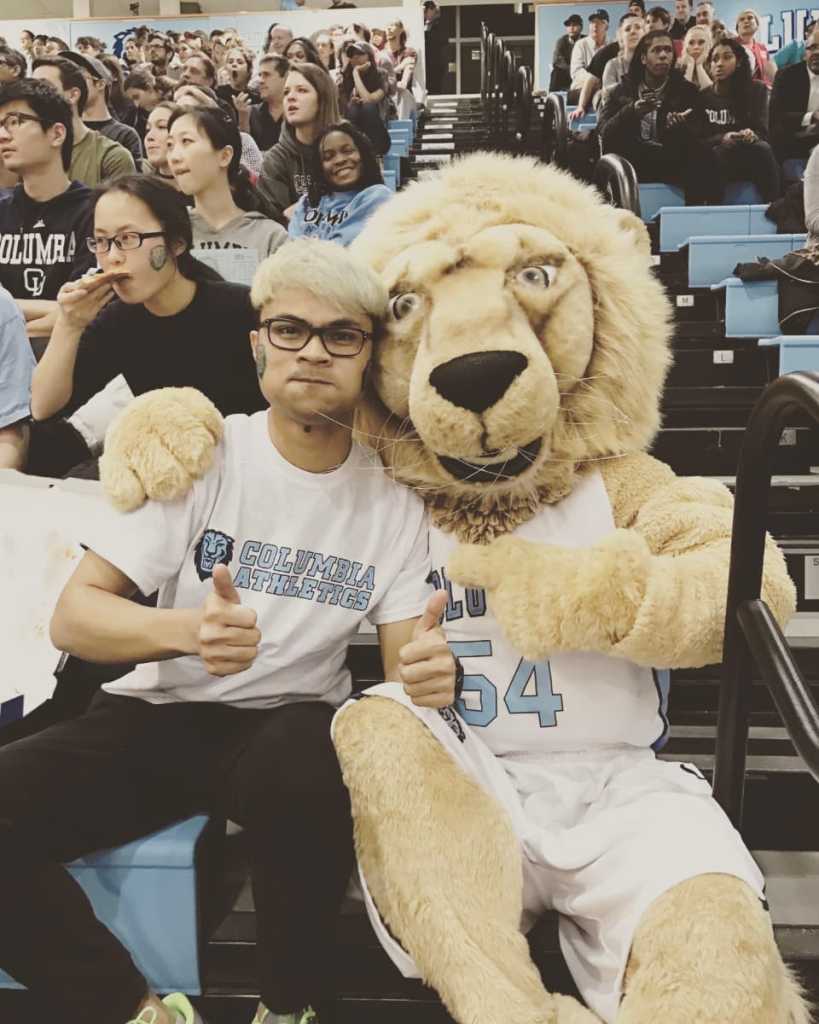

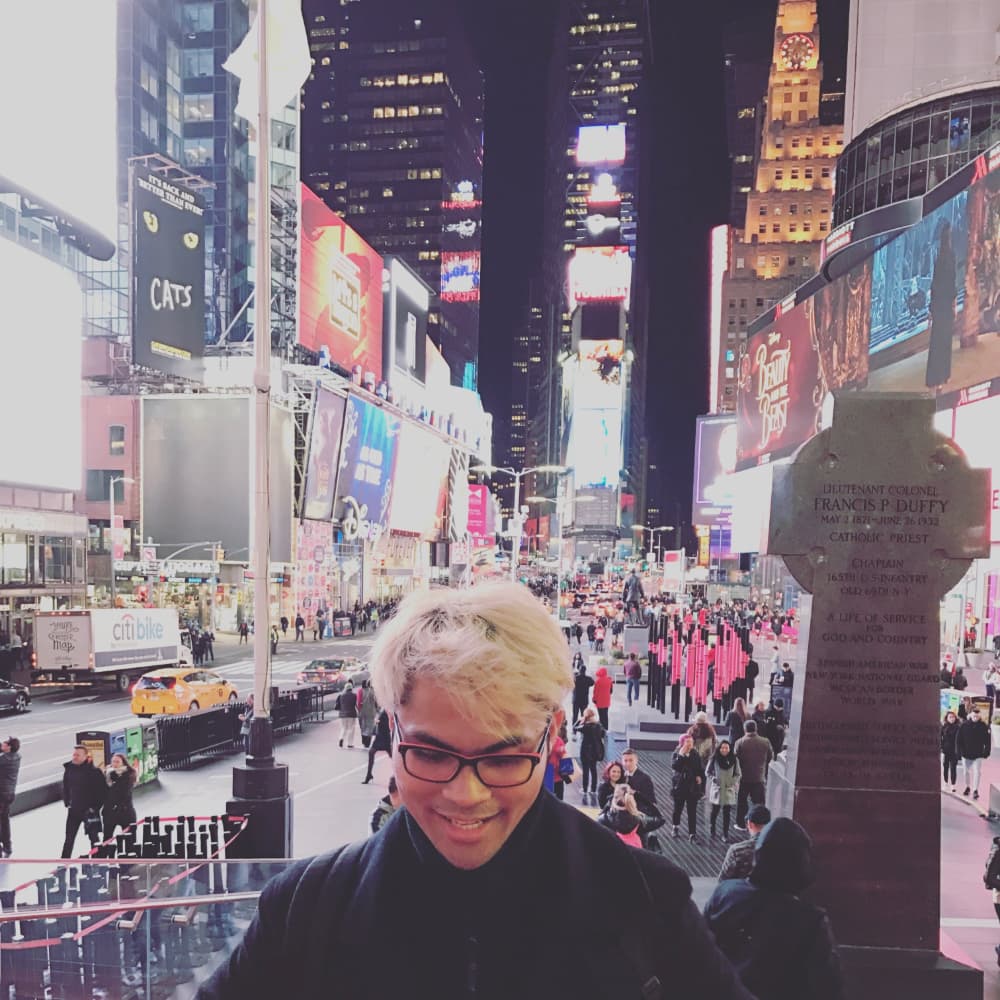
How was your experience at Columbia, and any tips on acing graduate school?
Robinson arrived in New York bright-eyed and bushy-tailed, ready to face Columbia. Or at least he thought he was. “Pas semester pertama gue di Columbia, itu gue sering nangis dan berat badan gue turun banget karena stress dan capek, (In my first semester at Columbia, I cried so much and I lost so much weight due to stress and always being tired)” Robinson recalled. With his physics background, he wasn’t used to having lots of group discussions and heavy reading. He struggled a lot, and even thought that maybe he doesn’t belong there. His advice to others feeling the same is to talk to friends, and don’t try to face everything all alone. “Gue curhat ke temen-temen gue yang sama-sama di Columbia dan ternyata mereka mikirnya juga sama, ini kuliah berat banget. Akhirnya gue pikir, ok, ini wajar, gak cuman gue aja dan gue gak perlu menangis lagi! (I confided in my friends who were also at Columbia, and it turns out they were thinking the same thing, that the study materials were so hard. After that I thought, ok, this is normal, it’s not just me and I should stop crying!)” Moving across the globe and learning something in a completely different language is not something that is easy, so acknowledge that although things may be hard at first, you are not alone and over time you will get better and better at it.
It’s also important to come to class prepared. Robinson came up with his own strategy — while doing the assigned readings, he would prepare a list of questions in his head about the subject at hand so that in class he would either as one question from this list or answer one question from other students. “Pede aja kalo ngomong, gak usah malu-malu. Lagipula, kalau malu ngomong dalam bahasa Inggris, kapan mau lancar? (Just be confident when you speak, don’t be shy. After all, if you’re shy about speaking English, when will you ever get better at it?)” Robinson looked back on the advice his internship supervisor gave him, “Don’t worry too much about not being able to speak English perfectly because people will understand that you’re an international student and that English isn’t your native language. Just be yourself and try your best.”
Over time, he also learned to embrace his non-linear background. Many of his friends at the School of Social Work didn’t pursue undergraduate studies in social work either, and it’s this diversity in experiences that enrichens class discussions.
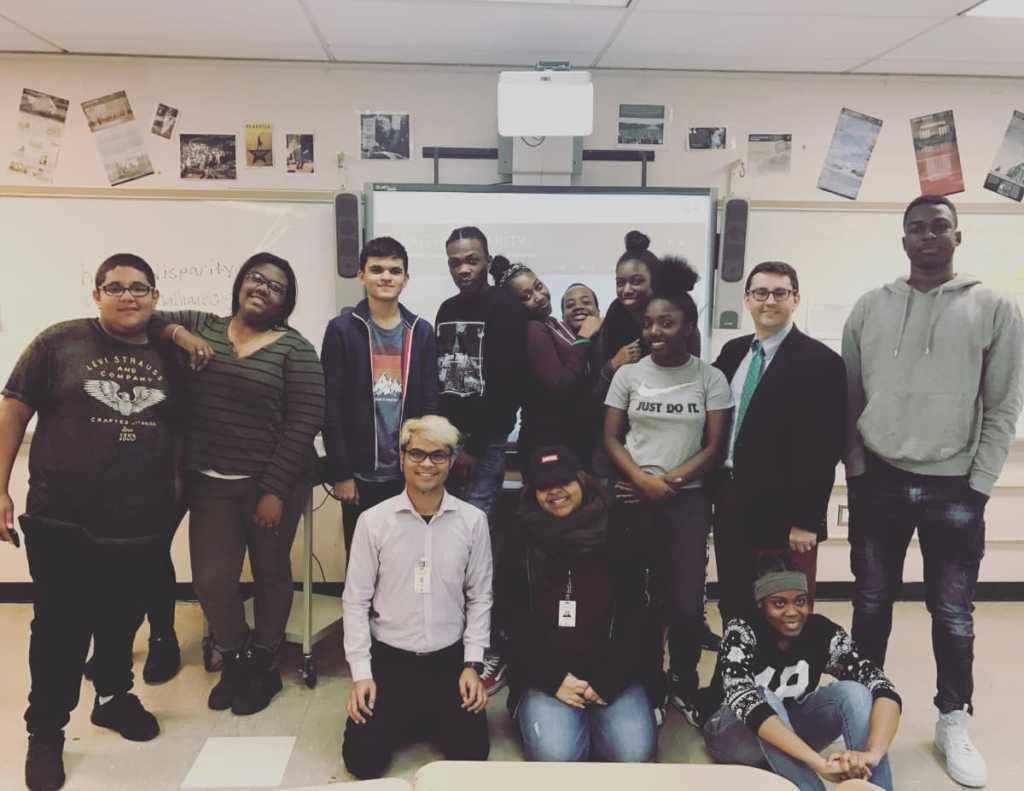
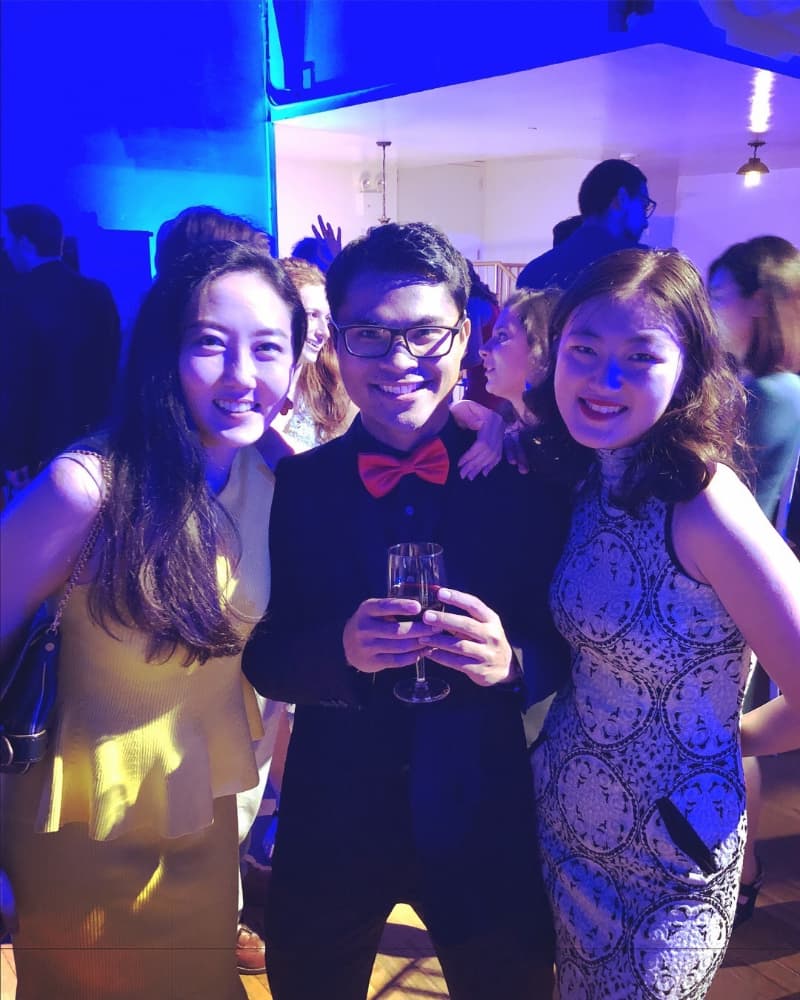
Post graduation life — what are you up to now?
Last May, Robinson graduated with a Master in Social Work from Columbia. He’s always been interested in the issue of youth and interfaith development, which led him to where he is now, as a counseling specialist at Queens Community House. With his training in social work, he is able to do one-on-one counseling, especially with students who are dealing with mental illnesses.
After our last article with Robinson came out, many have wondered how he is able to live in the US after graduating, given that he is an LPDP awardee, and as an LPDP awardee he is obligated to return to Indonesia after graduating. Robinson explains that he is currently working in the US under Optional Practical Training (OPT), a 12-month work authorization permit given to all international students in the US. He notified the LPDP committee through their online system (called Sistem Informasi Monitoring) on the opportunity to work at Queens Community House, and since it aligns with his goal of gaining more experience in the field of social work, there are no issues with him working in the US after graduating.
Another common assumption people make is that Indonesians who study abroad and choose to pursue opportunities abroad instead of returning to Indonesia right after graduating don’t care about Indonesia. Robinson disagrees with this and believes that there are other ways of contributing to Indonesia, despite being far away. “Menurut gue, justru gue saat ini bisa lebih banyak kontribusi dengan tinggal di luar negeri. Contohnya, gaji yang gue terima di sini, walaupun tidak berlimpah, tetap lebih banyak dibandingkan gaji yang gue akan terima seandainya sekarang gue kerja di Indonesia. (In my opinion, I am now able to contribute more by living abroad. I don’t earn a hefty salary but it’s still a lot more than I would be earning if I was living in and working in Indonesia.)” Robinson explained. He gave examples of how he was able to support kids in Indonesia financially, and how recently he provided monetary support for Tryouts at SMA 1 Tanah Pinem, North Sumatra. At Indonesia Mengglobal, we’ve also covered other Indonesians who are able to contribute to society even whilst being abroad, such as how Afu and Wikan created Frame & Sentences to foster discussions on issues that plague the Indonesian youth.
What’s in store for the future, Robinson?
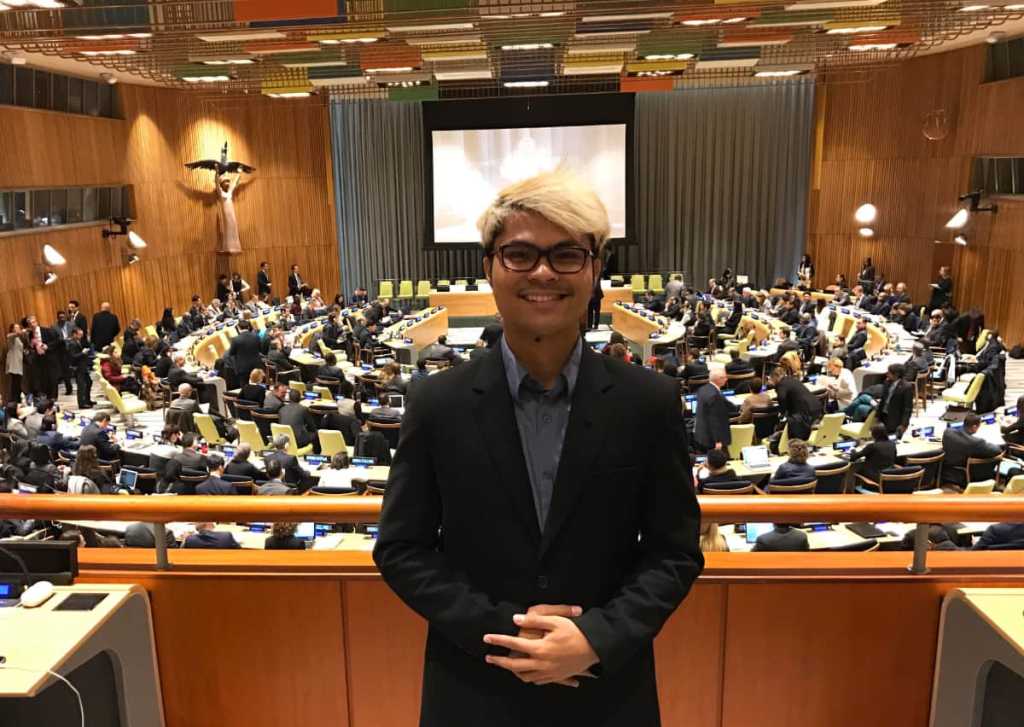
Robinson’s dream would be to work for the United Nations one day, making a big impact in Indonesia and beyond. He recently founded his own NGO called Mimpi Besar, which seeks to address the social issue of poor education attainment by providing scholarships and soft skills trainings to high-achieving high school and college students from low-income families in Indonesia. “Gue percaya mereka punya potensi. Tapi karena mereka gak ada informasi, gak cukup dana, dan gak ada wadah untuk bertanya gitu lho. … Gue bersyukur juga gue dari Universitas Sriwijaya langsung lompat ke Columbia University. Dan gue ingin menunjukkan orang-orang kalau they can do it too. (I believe that they have potential. But it’s because they don’t have the information, don’t have enough money, and don’t have a platform to ask questions. … I’m also grateful that I was able to go from Universitas Sriwijaya to Columbia University. And I want to show people that they can do it too.)”
This article was written by Indira Pranabudi and edited by Siti Octrina Malikah. Featured in this article is Robinson Sinurat. In his own words:
Robinson Sinurat is an awardee of LPDP scholarship. He received his Master’s degree in Social Work from Columbia University, USA. He currently works for Queens Community House in New York as a Counseling Specialist. He is interested in youth, interfaith, and sustainable development issues. He is the co-founder of the International Student Caucus at Columbia School of Social Work. In 2015, He received a full scholarship from the U.S. Department of State to join the leadership program called YSEALI on Civic Engagement at the University of Nebraska Omaha, USA. In addition, he received the Ambassador’s Award for Excellence 2017 on behalf of the Indonesian Embassy in the United States.
Robinson on his experience at Columbia University’s School of Social Work:
In my first year at CUSSW, I learned about the foundation of social workers through classes such as Foundation of Social Work Practice, Human Behavior and Social Environment, and Social Welfare Policy. In my second year, I decided to pick the Social Enterprise Administration concentration which covers topics including NGO Organization and Management, Human Resource Management, Program Social Planning and Program Development, Staff Development, Training, and Coaching, and Program Evaluation. Most of my classes were smaller in size (10-15 student) which in my personal opinion is great because it allows for more engaging classes and one-on-one time between students and professors. For more information: https://socialwork.columbia.edu/.











